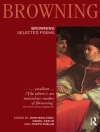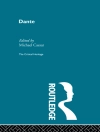A timeless exploration of humanity’s connection to nature, The Georgics of Virgil delves into the art and labor of agriculture while weaving in the grandeur of Roman patriotism and mythology. Composed by Virgil over seven years and completed in 29 B.C.E., this masterful poetic work offers meditations on the cycles of cultivation and their profound alignment with the natural and divine order. Its rich tapestry of mythological references intertwines with reflections on duty, prosperity, and resilience in the face of adversity.
First read to Augustus upon his return from the East, the poem holds a unique place in Roman literature, bridging the pastoral and epic genres while capturing the cultural and political spirit of its time. Though Virgil sought its suppression before his death, the intervention of Augustus preserved this lyrical gem, offering readers enduring insights into the harmony-and tensions-between human ambition and the natural world.












